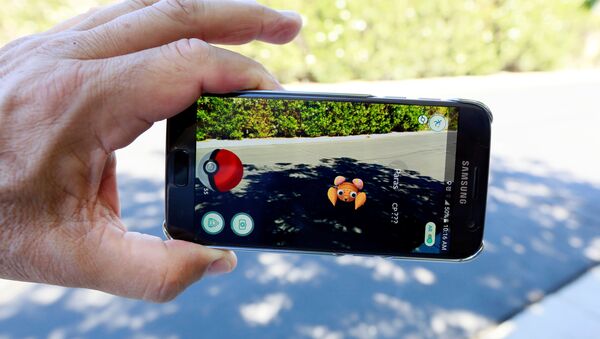The initial release has been followed by other releases in regions across the world and while it has not yet been released officially in Russia, officials there have raised concern about the game's safety.
On Tuesday Russia's Federal Service for Supervision of Communications, Information Technology, and Mass Media (Roskomnadzor) issued a warning that criminals could use the game's "Lure Modules" to bait potential victims of crime to a particular location.
Roskomnadzor urged users to "be vigilant, take your eyes off the screen once in a while, and inform your family and friends about your location."
A report by UK children's charity NSPCC also reports of "numerous accounts of children being placed in dangerous situations because of the geo-location feature," including an armed robbery of teengers playing the game.
On Wednesday two men in their early 20s were playing Pokemon Go in California when they fell off a cliff. The pair fell an estimated 50 – 90 feet (15 –27 meters), and the extent of their injuries is unclear. While engrossed in the game, they had walked past signs that said "No Trespassing" and "Do Not Cross."
Police officers in Indonesia have been banned from playing Pokemon Go by the Central Java Police, who also warned they are ready to investigate any violation of traffic regulations or privacy rights.
While the sale of the Pokemon Go game has not been outlawed anywhere, there are many video games which at one point were deemed too dangerous for society by the authorities, and on Tuesday RIA Novosti published a list of them.
The Pokemon Trading Card Game
The Pokemon Trading Card Game was released by Nintendo for its Game Boy Color in 1998. The object of the game is to win Pokemon prize cards, after successfully using a Pokemon character to knock out other Pokemons on the battlefield.
Despite the relatively inoffensive plot, the game was banned in Saudi Arabia after the country's Grand Mufti condemned the game as Zionist propaganda.
According to the Grand Mufti, one of the Pokemon card symbols resembled a Star of David. The country's most influential Muslim religious and legal authority also said that crosses and triangles on the cards represent Christianity and Freemasonry respectively.
A non-linear fighting game focused on a graffiti artist; the game was released in 2006 for PlayStation 2, Xbox, and Windows.
Marc Ecko is a US fashion designer who dabbled in graffiti as a teenager, and "Contents Under Pressure" refers to the warning found on cans of aerosol spray paint.
The game's main character is a graffiti artist called Trane, who uses graffiti and tagging as a way to protest against authority in the corrupt Dystopic city of New Radius.
Bully
Bully was released in October 2006 for the Playstation 2. The protagonist is James "Jimmy" Hopkins, a new student at Bullworth Academy, a boarding school in New England.
Jimmy finds that the school is full of bullies, and his task is to defeat them and make it a peaceful place. Weapons at his disposal include slingshots, bags of marbles, stink bombs, spud cannons, and even kisses for male and female students.
As well as bullies, there are school groups like Nerds, Preppies, Greasers, and Jocks, and players have to complete missions to progress through the game.
"The aggravating factor is that everything in [Bully] takes place inside a school," said Rio Grande do Sul state prosecutor Alcindo Bastos. "That is not acceptable."
EA Sports MMA
EA Sports MMA is a fighting video game which was released in 2010 for the PlayStation 3. The game centers on mixed martial arts (MMA) fighting, and takes place in venues including boxing rings, circular cages and hexagonal cages.
In its bid to recreate the authentic surroundings of MMA, the game features sponsorship by an energy drink manufacturer. However, this fell foul of the law in Denmark, where the advertising of energy drinks is outlawed.
Rather than recreate the game without the energy drink advert, EA Sports decided to cancel the game's release in the region.
"Our game authentically recreates the sport of MMA in every facet, including energy drink in-game sponsorships on fighter shorts, gear, and in fight venues."
Mortal Kombat
Mortal Kombat was first released in 1992 as an arcade game, and for Nintendo and Sega home consoles the following year. Its violent content led to an outpouring of moral panic and prompted several countries, such as the US and Australia, to introduce a rating system for games.
Versions of the game have been banned in several countries, such as Australia, Germany, and South Korea.



